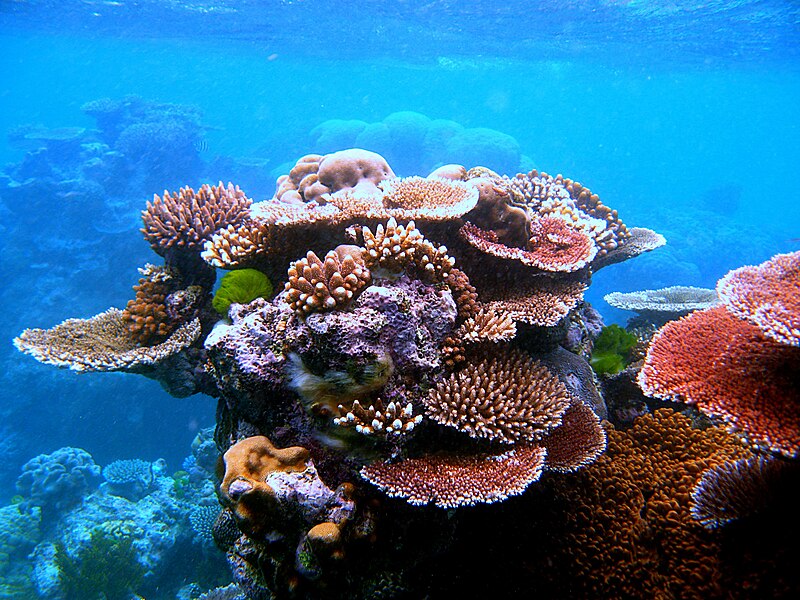<< Hide Menu
Jenni MacLean
Jillian Holbrook
Jenni MacLean
Jillian Holbrook
Climate Change in the Oceans

Image Courtesy of Wikimedia
As global air temperatures increase from excess greenhouse gasses, ocean temperature increases as well.
A lot of marine species are highly dependent on the temperature of the water to regulate the temperature of their bodies. Ectotherms, including fish, amphibians, reptiles, and invertebrates, depend on external sources of heat for their body temperature, meaning the body temperature of an aquatic ectotherm is usually very close to the temperature of the surrounding water. As the temperature of the ocean increases, organisms are subject to extreme metabolic stress and may lose the ability to metabolize their food or reproduce! 🐠
Impact on Coral

Image courtesy of Wikimedia
If the temperature becomes hotter than species can handle, they must be able to adapt or move. For sedentary (non-mobile) species like coral, the increase in temperature is often fatal.
Corals are complex animals that are made up of a colony of tiny polyps. Each polyp resembles a tiny sea anemone and is capable of catching small organisms out of the seawater. Although the coral catches food and is able to share nutrients from one polyp to the next, tropical water is often nutrient-poor and will not provide enough to sustain the coral.
Coral has developed a symbiotic relationship with algae called zooxanthellae. The algae are provided with a stable place to live and nutrients and, in turn, provide the coral with sugar.
However, the algae living inside corals are very temperature sensitive and cannot live in warmer water. When the algae die and are expelled, the coral turns white or bleaches. Bleaching events occur with heat waves that drive the temperature of the ocean up. Most corals are not able to recover from these events and will die.
There have been over sixty major global coral bleaching events since 1980, with the most devastating occurring from a strong El Niño event from 2014-2017. In just this event, over 70% of the world's coral reefs were damaged.

Image courtesy of Wikimedia
Ice Caps
The polar regions have already warmed by one to four degrees celsius. This increase caused over 3,000 trillion pounds of ice to melt into the ocean between 2000 and 2008. With the predicted increase of four more degrees, there will be a catastrophic impact on sea ice levels. The melting of sea ice not only destroys polar habitats but changes habitats globally with sea-level rise and changes to currents. 🧊
🎥 Watch: Environmental Science Streams

© 2024 Fiveable Inc. All rights reserved.